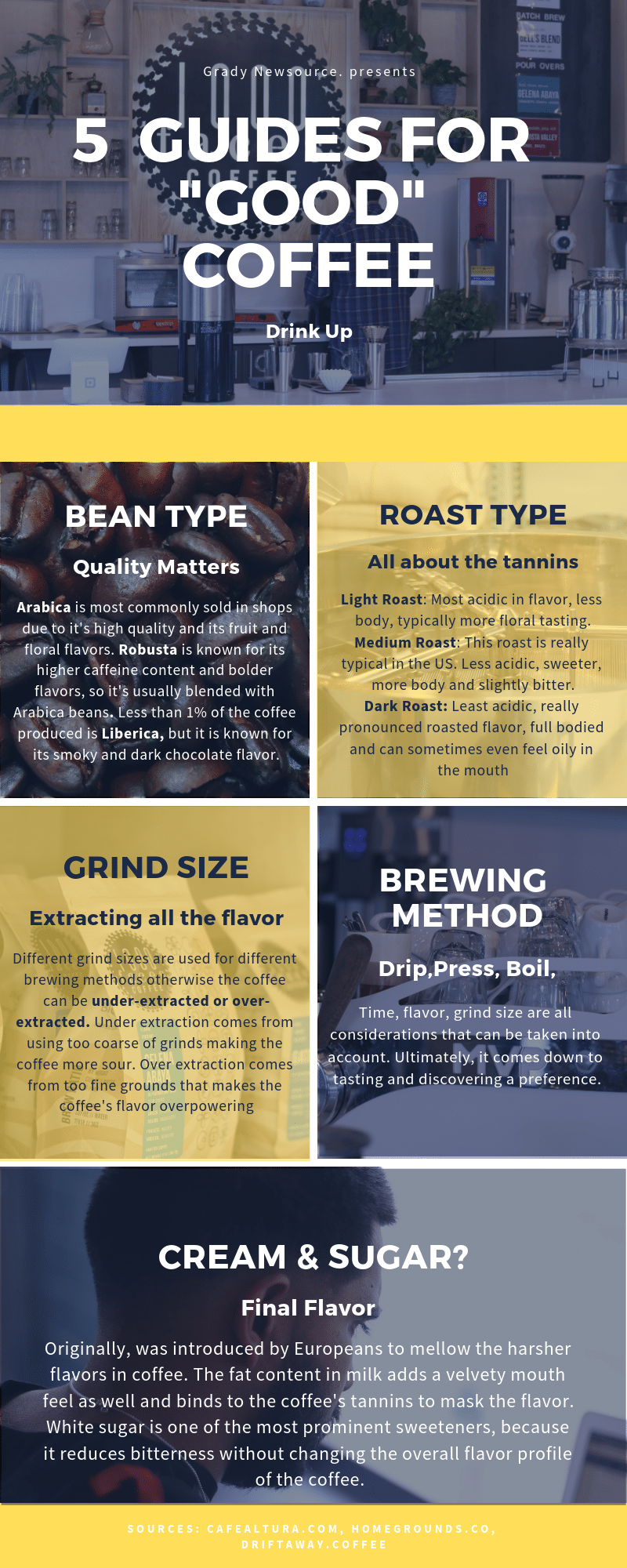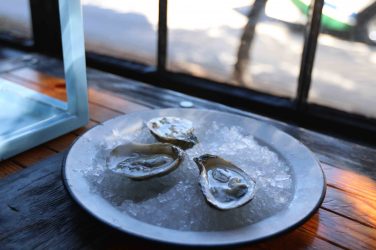When surveyed by the University of New Hampshire, 64 percent of Americans said they drink at least one cup of coffee per day. For some, coffee is an enjoyable beverage. For others, coffee is a necessary habit. Yet for a particular crowd, coffee is an exploration.
Ronald Pegg is a professor at the University of Georgia studying the health benefits and properties of the natural protectants (phenols) that are found in plants. For the past eight years, Pegg has led a course on coffee production at University of Georgia’s Costa Rica campus.
From soil to cup, every single step affect the ultimate quality of the coffee. Specifically, every step affects the tannins that are found in coffee. Tannins are coffee’s natural protectant that give it its defining flavor.
“Coffee gives you that pucker at the back of your throat- that’s the astringency from the tannins. If coffee tastes bitter, it’s because the beans were burnt,” Pegg said.
Lots of things are considered when creating a cup of coffee. But it all begins with a simple, but an impactful decision. The beans that are going to be grown.
According to Pegg, Costa Rica only grows Arabica beans because those are considered the highest quality. Yet even with quality beans, the soil, the climate, and even the water can affect the flavor.
All of these factors are considered by the harvesters, the roasters and people like Molly Stokes.
Stokes is a barista at 1000 Faces Coffee– a coffee roaster and shop based in Athens, Georgia. Stokes began her coffee career as a student at the University of Georgia.
After her first day working at another local coffee shop, Jittery Joe’s, Stokes knew coffee was going to be more than just a part-time job.
“I remember calling my mom and saying, ‘This is it! I’m gonna ‘ do coffee forever!’”
Since that day seven years ago, Stokes has dedicated her life to creating the best cup of coffee. From Jittery Joe’s to Portland, and now 1000 Faces, Stokes has used all of her experience as a basis of consistency and as the building blocks for a new endeavor. Her own shop.
She is still scoping out potential locations and the opening date is still far in the future, but her focus is clear. Stokes wants to produce coffee that preserves an attention to detail but still attracts a casual consumer.
With so many factors to consider, it may seem as though there’s a clear way to make and consume coffee. Yet when asked, both Pegg and Stokes had the same conclusion. The best cup of coffee is the one the consumer wants to drink.
To help find your best cup of coffee, here is an infographic overview of coffee considerations.

Yazmarr Williams is a senior majoring in journalism.






